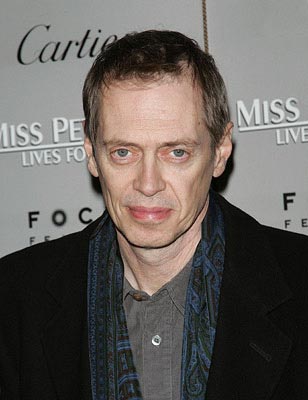An argument between two psychologists over actor Steve Buscemi may have finally led to an answer for that complex question: What is cool?
Applying an empirical investigation to discover the nature of coolness, three separate studies were devised to first identify through a survey qualities that were cool, then ask people to rank those qualities in desirability and then to rank their friends on these qualities.
Basing their research on the notion that cool is being attractive and desirable and not unwanted, Ilan Dar-Nimrod, who works at the University of Rochester Medical Center and his friend, Ian Hansen of York College came to their scientific conclusions.
Beginning their research after Ilan Dar-Nimrod disagreed with his friend, Ian Hansen’s assertion that Steve Buscemi was cool, the two scientists decided to discover why Buscemi was even considered cool in the first place.
With his unusual looks and whining voice, Steve Buscemi is not the quintessential Hollywood star however, he has starred in some iconic and arguably “cool” roles such as Mr. Pink in Reservoir Dogs and Enoch “Nucky” Thompson in HBO’s Boardwalk Empire.

Deciding to have a go at settling the debate of whether Steve Buscemi is cool or not, the pair came up with three separate studies which asked 353 college students at the University of British Columbia to first submit words they thought described cool.
Then secondly, the students deemed these qualities as how desirable they were and then judged their friends.
“We wanted to tease apart coolness and social desirability,” said Ilan Dar-Nirmrod, who is aware his last name is not cool according to a report on MSNBC.
“There is a lot of overlap between social desirability and coolness.”
Indeed, the majority of responses that the two psychologists received as words to describe cool focused primarily on appearance.
They saw cool being equated as “hot”, “handsome”, “beautiful” and “sexy”, revealing an overwhelming theme of simple physical looks.
“Our research was kind of designed to see what goes into coolness evaluation,” said Ilan Dar-Nimrod.
“What we found was that the dominant perception of coolness is revolving around social desirability and generic semi-gentrified traits.”
Aside from good looks, the researchers expected to find rebelliousness to be a cool trait, reminiscent of a James Dean.
What they discovered instead was that the students they used in their study thought that friendliness constitutes cool.
In fact, on top of being good looking and friendly, if you are a high achiever in life then you are moving into ice-cold territory.
As well as being generally successful and blessed in life, volunteering to help within society is seen as cool too.
Also listed as desirable traits that are equated with coolness are trendiness, individualism, confidence and having a sense of humor.
And although it seems that coolness is more straight-laced than first thought, the James Dean-style, smoking, moody, “contrarian cool” still exists.
“There is a smaller and different facet…which is the dark, historical coolness, revolving around counterculture, risky behavior, irony,” said Ilan Dar-Nimrod, who still thinks that Steve Buscemi is not cool.
“Going into the project, it is what I perceived as coolness.
“It is much less dominant.”
